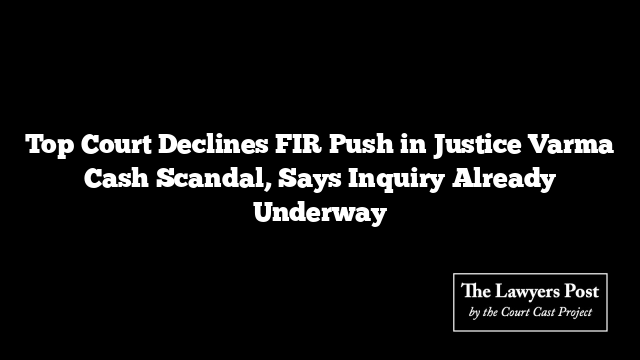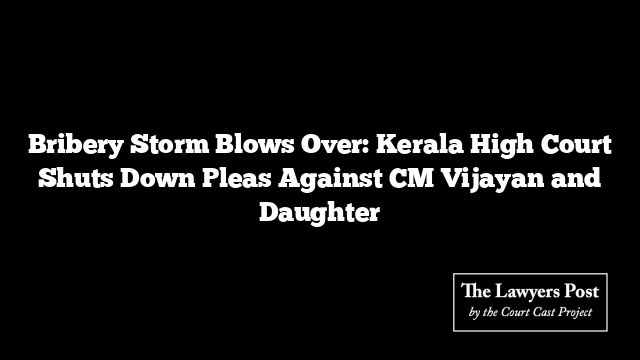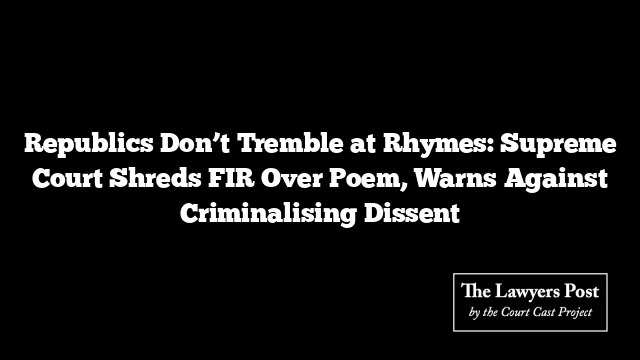The Supreme Court has turned down a plea demanding an FIR against Justice Yashwant Varma, after a large stash of unaccounted cash was allegedly discovered at his residence following a fire on March 14.
A Bench comprising Justices Abhay S Oka and Ujjal Bhuyan made it clear: an in-house committee formed by the Chief Justice of India is already handling the matter. If wrongdoing surfaces in the report, they said, the law will take its course — FIR or even parliamentary scrutiny isn’t off the table, but for now, it’s a wait-and-watch.
“This isn’t the moment for intervention,” the judges said, brushing aside the petition from advocates Mathews J Nedumpara and Hemali Suresh Kurne, who argued that the absence of immediate criminal proceedings erodes public trust. “Why no arrest? Why no FIR? Why the delay?” Nedumpara pressed.
Justice Oka responded bluntly: “The in-house process exists for a reason. If wrongdoing is found, all legal avenues remain open.”
The bench emphasized the internal procedure’s precedence over public speculation. “Common people may not understand,” Nedumpara persisted. “Then help them understand,” Oka replied. “You must educate them about what the law says.”
The Court formally disposed of the petition, reiterating that the matter is being actively investigated through the established judicial channels. “After the report is submitted by the committee, multiple options will be available to the Chief Justice of India. At this point, there is no need to reconsider past judgments,” the order stated.
What triggered this public spectacle was a fire at Justice Varma’s residence, which led to the discovery of charred bundles of cash—images of which reportedly made their way from the Delhi Police Commissioner to the Delhi High Court’s Chief Justice and then to the Supreme Court’s website. Allegations of corruption quickly followed, but Justice Varma has denied any wrongdoing, alleging he’s been framed.
In response, the Chief Justice of India established a three-member committee on March 22 to investigate the claims. The Delhi High Court’s Chief Justice also submitted a report along with Justice Varma’s own explanation, both of which have been made public.
The Supreme Court Collegium, meanwhile, moved swiftly to recommend Justice Varma’s repatriation to the Allahabad High Court—his parent court—on March 24. The Centre has yet to act on the recommendation.
Nedumpara, who calls the incident a textbook case of judicial corruption, claimed the delay smacks of a cover-up. “Unaccounted cash like this is black money from the sale of justice,” he alleged.
He also challenged the very legal framework that insulates judges from criminal prosecution without prior approval of the Chief Justice, citing the 1991 K Veeraswami ruling. “This judgment has created an elite class of judges who are untouchable under criminal law,” he claimed, insisting that administrative inquiries shouldn’t be allowed to replace criminal justice mechanisms when serious accusations are involved.
Despite the storm, the top court remains unmoved—for now—choosing institutional procedure over public outcry.





